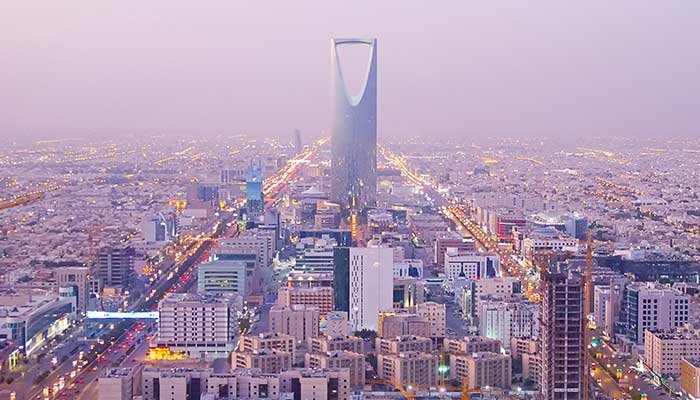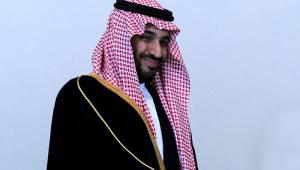web_riyadh_istock-185927876.jpg

Riyadh, the capital of Saudi Arabia.
The oil-rich kingdom, once flush with cash, has seen its economy and public finances plummet because of the drop in oil prices in recent years, with its deficit peaking at almost $100bn (15% of GDP) in 2015.
Since then, it has embarked on an ambitious programme to reform its economy, rein in some of the lavish spending to which it had become accustomed and find other sources of funds – this includes planning the first and pretty much only tax on ordinary Saudis – a VAT.
While the IMF said the aim of bringing about a “large, sustained and well-paced” effort to balance the budget was appropriate, it said the country could ease up somewhat on how quickly it got there.
“The target of balancing the budget does not need to be met in 2019 ... given Saudi Arabia’s strong financial asset position and its low debt,” explained Tim Callen, who led the fund’s team in Saudi.
“A more gradual fiscal consolidation to achieve budget balance a few years later would reduce the effects on growth in the near term while still preserving fiscal buffers to help manage future risks.”
He highlighted Riyadh’s plans to reduce energy subsidies and link prices to international benchmarks, where he said there was scope for gradual implementation to allow households and businesses time to adjust.
Steps to increase the transparency of fiscal policy through the publication of key documents and reports was “very welcome”, he continued, as it will help private businesses and investors make decisions.
The IMF is pushing Riyadh to increase the role of the private sector in the economy, which has so far been dominated by the large Saudi state. Two thirds of the population work in the public sector.
“Creating more jobs for Saudi nations in the private sector is essential,” Callen stressed, as well as calling for more efforts to encourage female employment.
“Additional reforms are expected to be announced in the coming months to boost the private sector, including an ambitious privatisation and public-private partnership programme to reduce the role of the government in the economy,” he added.
The IMF also completed a health check of nearby Oman, where the slump in oil prices has had similar consequences for the public finances and the economy.
Allison Holland, who led the fund’s team, welcomed the government’s “ambitious” bid to cut the deficit almost in half in the 2017 budget, bringing it down to 12% of GDP if successful.
Growth in Oman, however, was expected to “remain flat” in 2017, as a result of an agreement between the world’s oil producers to cut production to boost prices. The economy grew by 3.4% last year, slowing from 4.2% in 2015.













